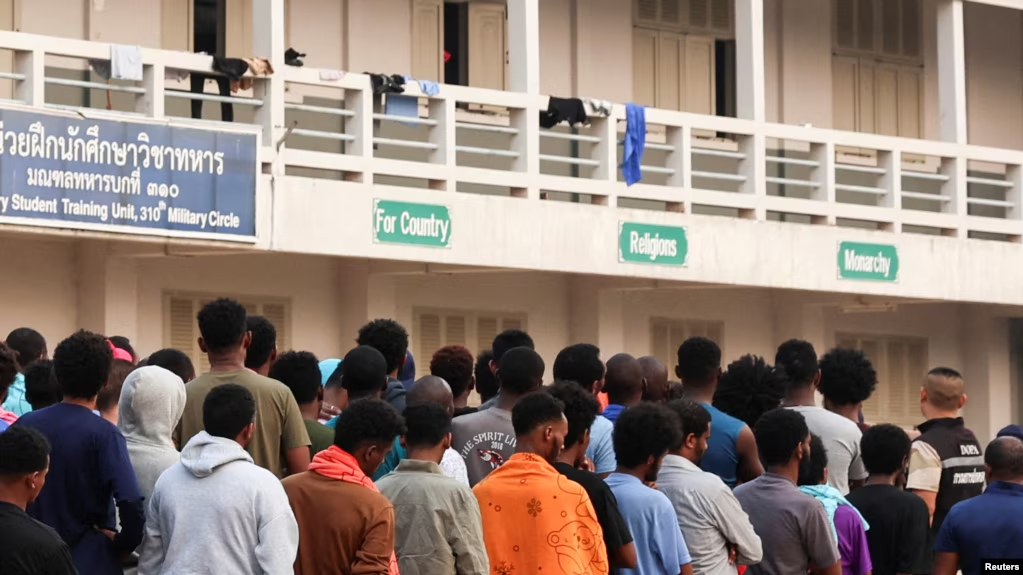
, Thailand and Myanmar cracked down on telecom fraud sites run by criminal gangs, the report said, citing three sources on Monday ( February 24 ).
Authorities from the three countries have joined forces in recent weeks to crack down on telecom fraud centers and illegal online activities in the Thai-Myanmar border area after the telecom fraud centers on the Thai-Myanmar border caused severe damage to the reputation of China, Thailand and Myanmar, especially Thailand's tourism industry . Reuters reported that a senior Thai official said on Sunday that Thai and Cambodian police raided a building in a border town and rescued 215 foreigners . - the Karen National Army ( KNA ) and the Democratic Karen Buddhist Army ( DKBA ) - are holding around 7,000 former scammers but are unable to send them to Thailand, a Thai security official and two aid workers said. " Many people are trapped in uncertainty and the lack of response from Thailand is causing huge harm, " said one aid worker currently on the Thai side of the border. " These victims are being victimized again. " Thailand's Ministry of Foreign Affairs said agencies were currently planning future transfers of the released persons, but this would be " based on the readiness of the embassies or countries of origin " . Officials from the Karen National Army and the Democratic Karen Buddhist Army did not respond to calls from Reuters.
According to rescuers, most of the people controlled by the Karen National Army and the Democratic Karen Buddhist Army are Chinese, with about a thousand others from other countries . Reports say many former scam centres are being held in poor conditions, with local authorities concerned about a lack of sanitation and medical facilities . Phumtham Wechayachai, Thailand 's deputy prime minister and defense minister , said last Thursday that Thailand does not have the capacity to take in more people unless foreign embassies repatriate those crossing the border. Thailand received 260 scam center workers in February , more than half of whom were from Ethiopia, which has no embassy in Thailand. Last week, Thai authorities also allowed China to repatriate 621 Chinese citizens from a border town via multiple flights.
According to the United Nations, many criminal gangs run by Chinese in Southeast Asia have smuggled hundreds of thousands of people into illegal telecom fraud activities. At least 120,000 people in Myanmar and another 100,000 in Cambodia may have been forced into lucrative online scams. Many were lured by False promises of high-paying jobs.
These telecom fraud centers have been operating in the region for many years. However, the disappearance of Chinese actor Wang Xing, who was lured to Thailand in early January with the promise of a filming job and then trafficked to a Myanmar telecom fraud park, attracted widespread attention on social media, prompting the Chinese embassy and consulate in Thailand and the Thai police to intervene in the investigation. Wang Xing was subsequently rescued and returned to China.
The Wang Xing incident also sparked a rare grassroots movement in China, collecting the names of nearly 1,800 Chinese people who were allegedly forced to stay in Myanmar 's online fraud center. Since then, pressure from public opinion has forced China and Southeast Asian countries to step up efforts to crack down on fraud centers, including Thailand cutting off electricity, fuel and the Internet in areas related to fraud centers.
Thai police told reporters on Monday that since March 2022 , victims of telecommunications fraud have suffered financial losses of 80 billion baht, or about $ 2.4 billion, in Thailand alone.
